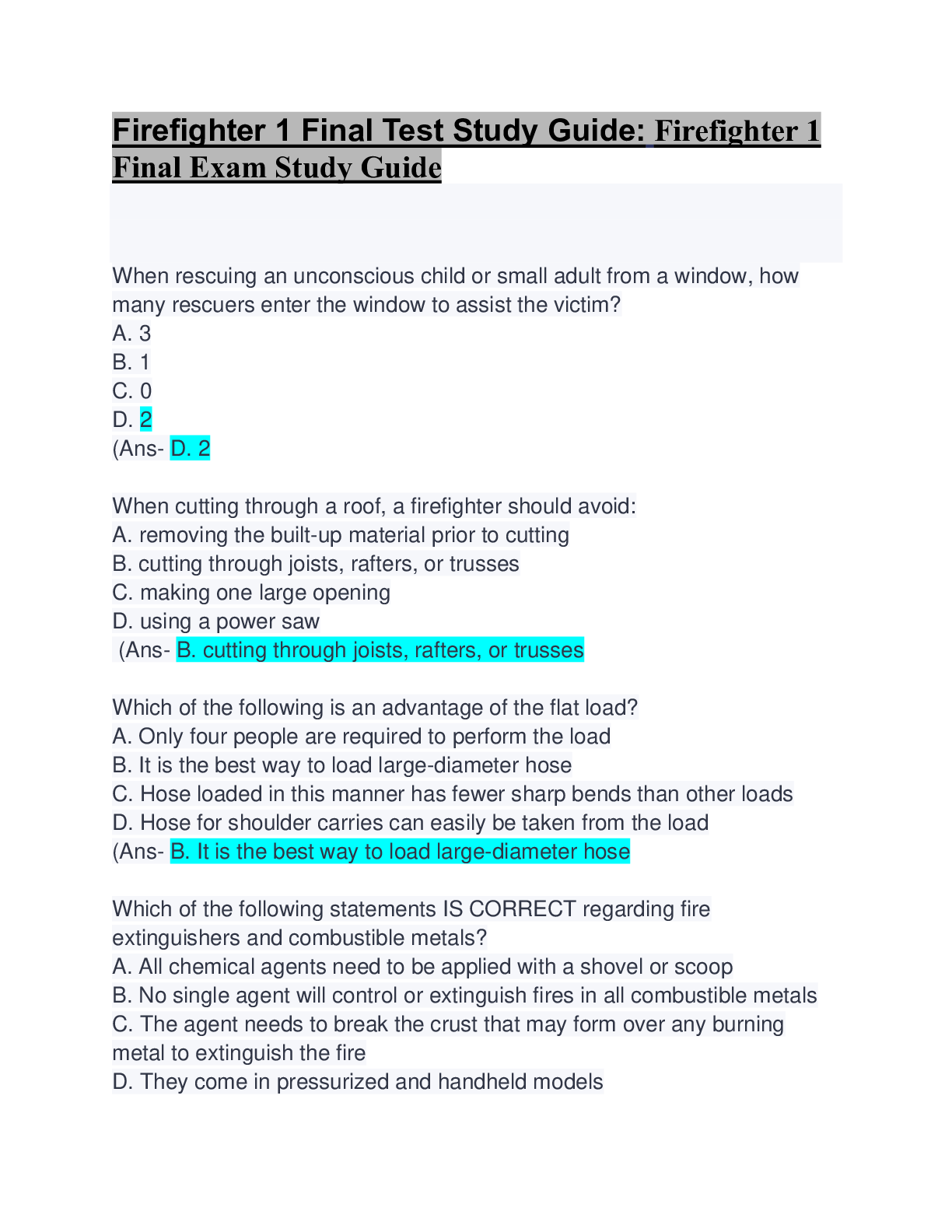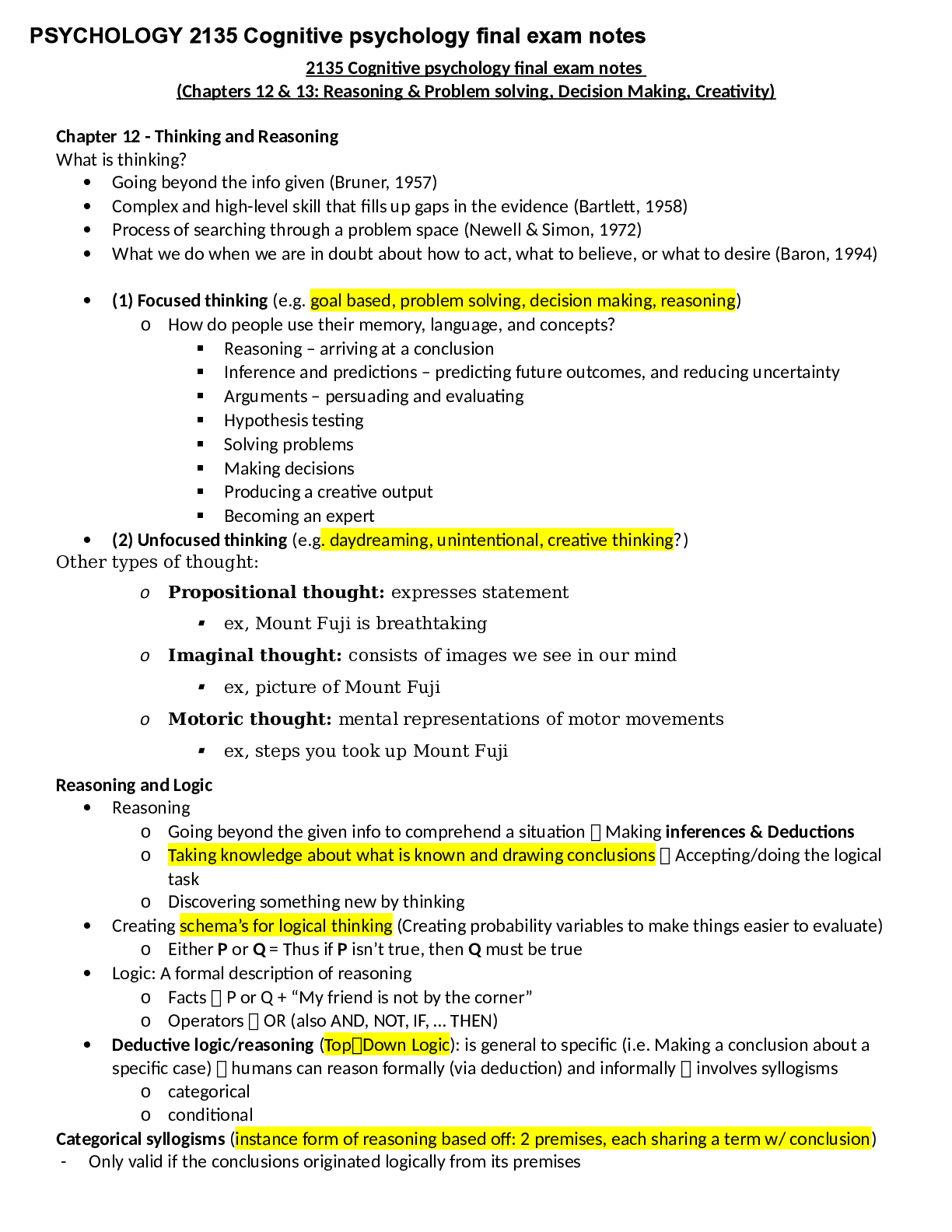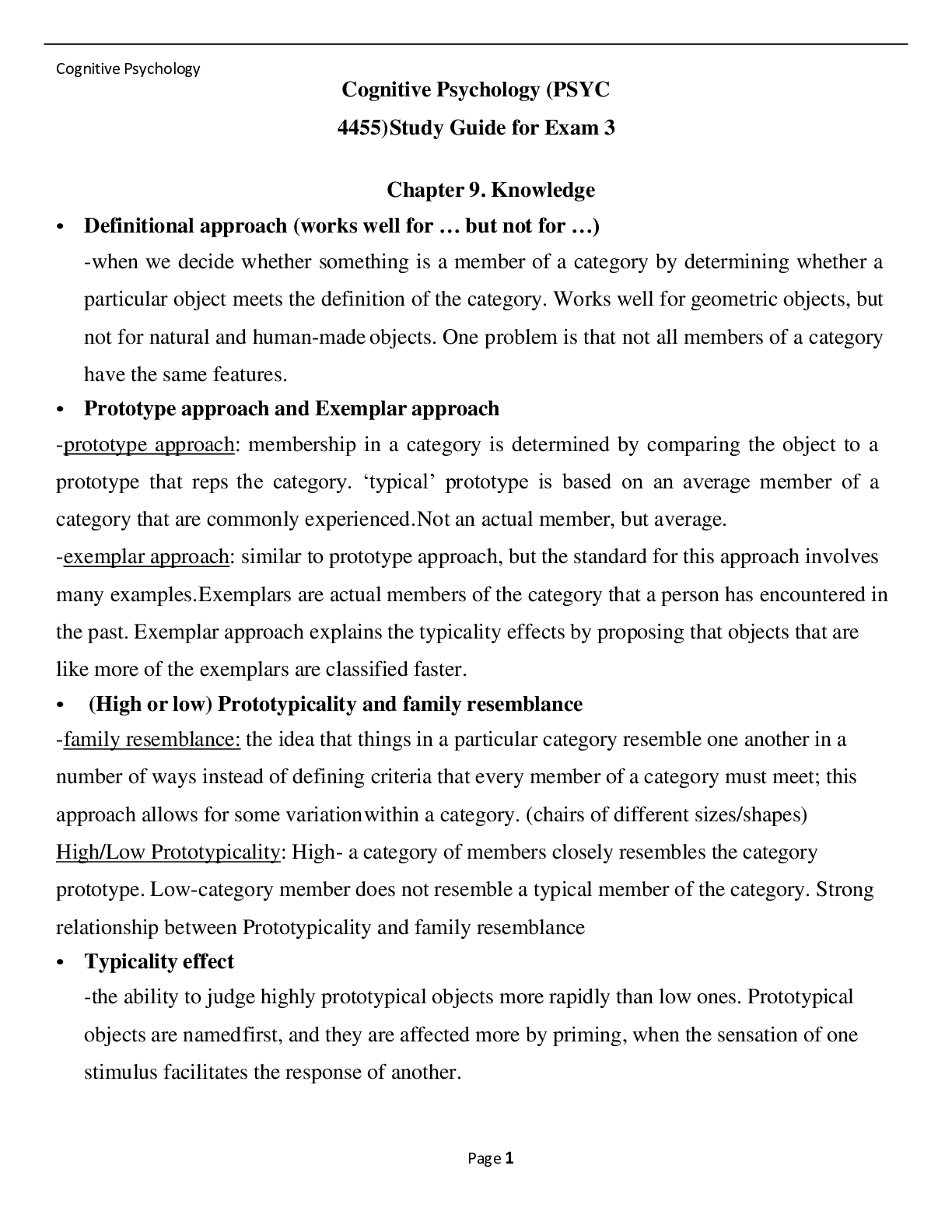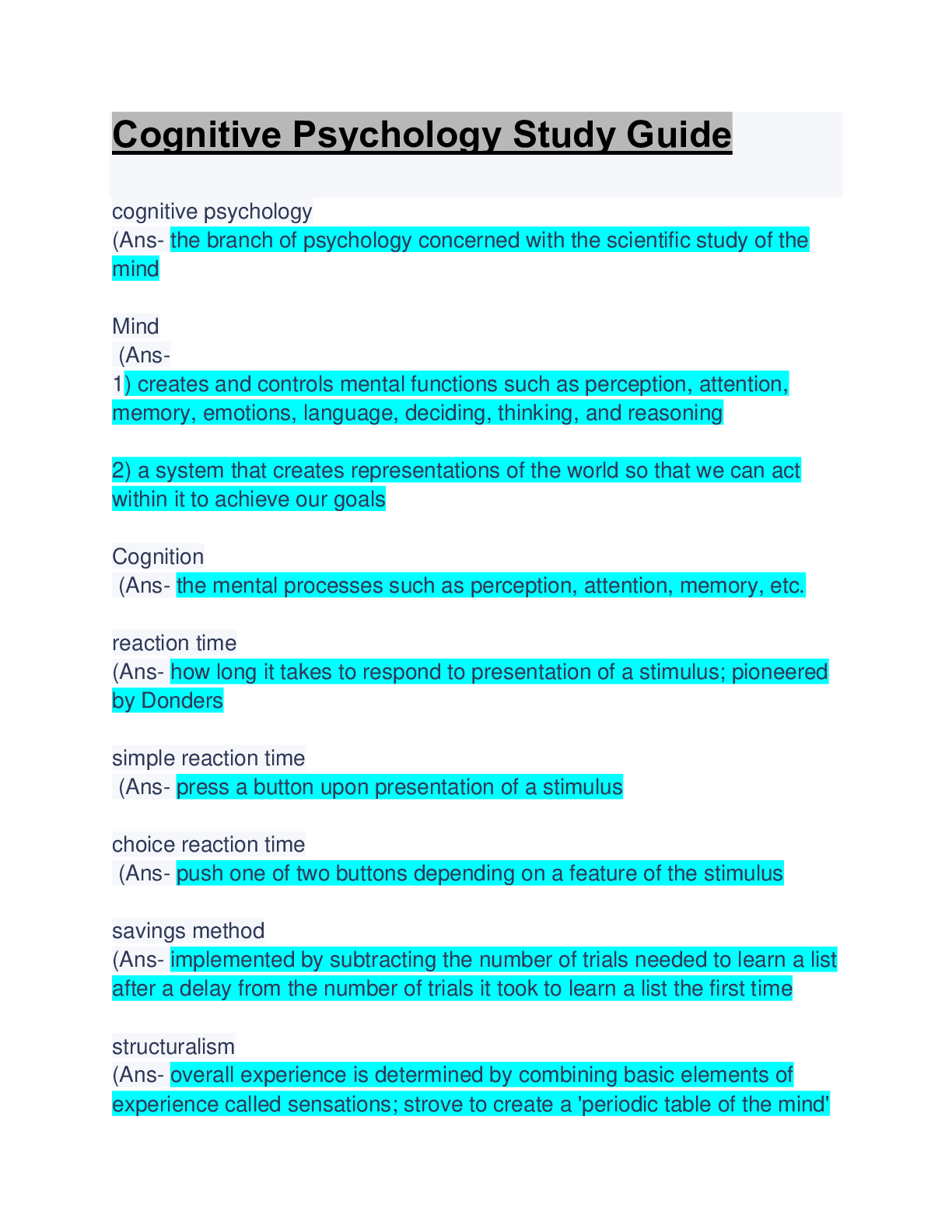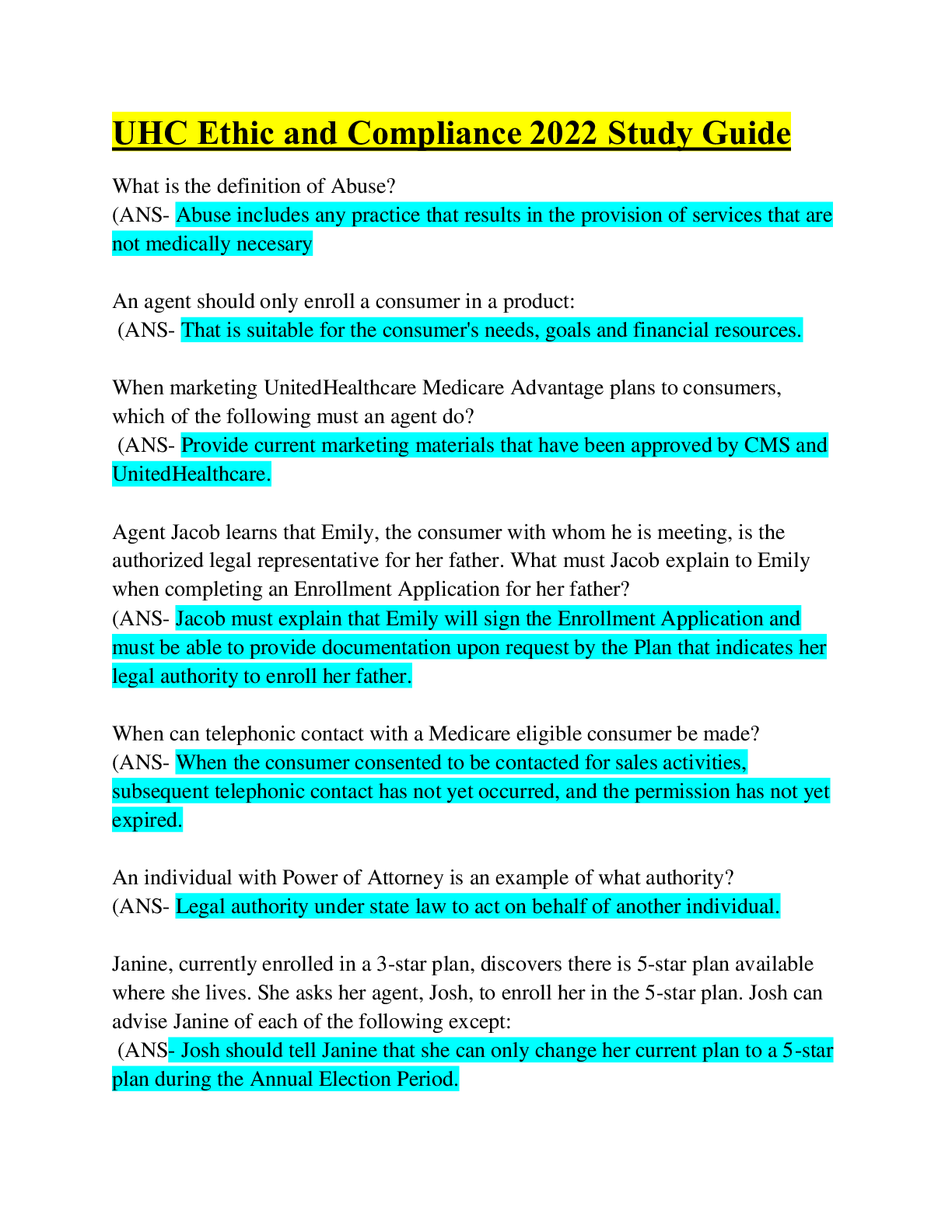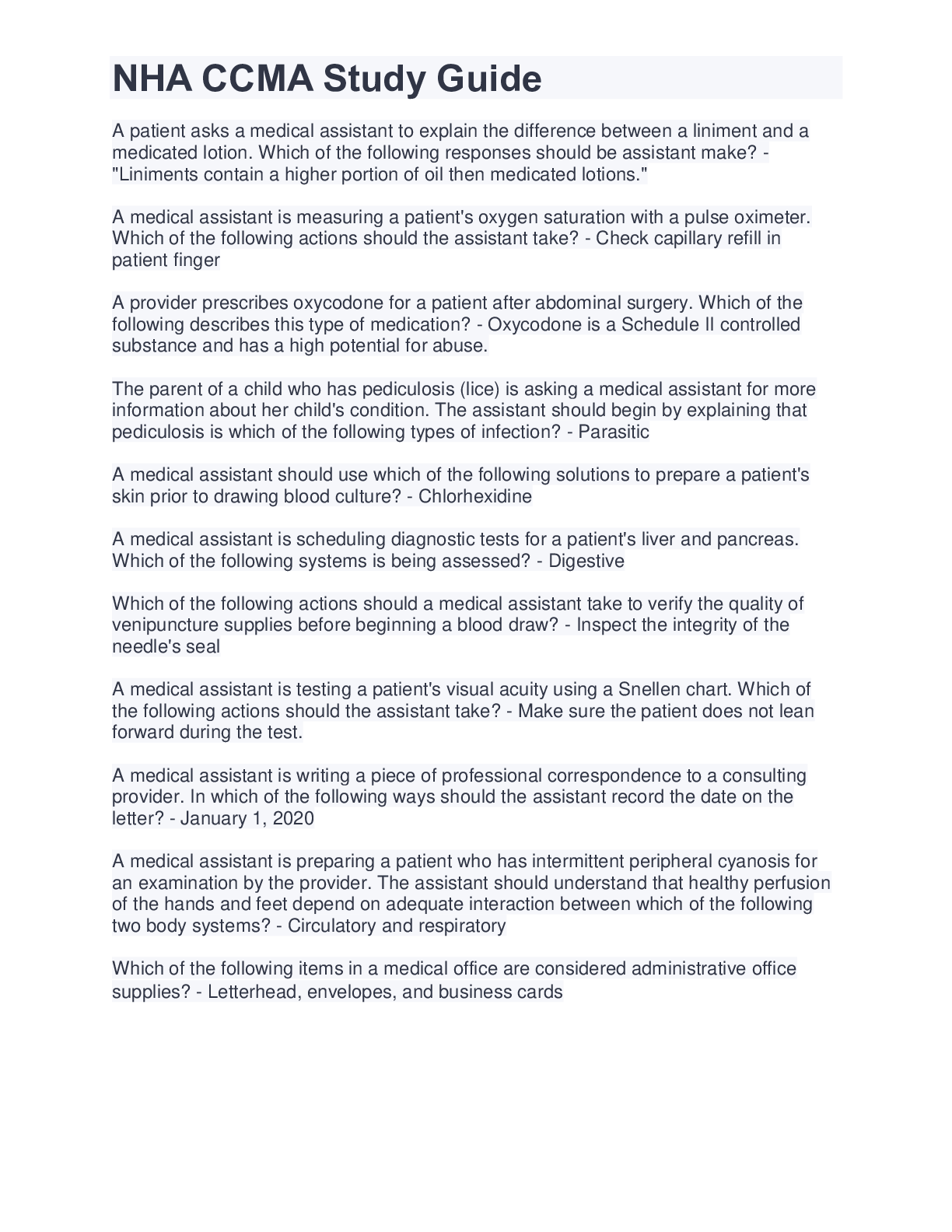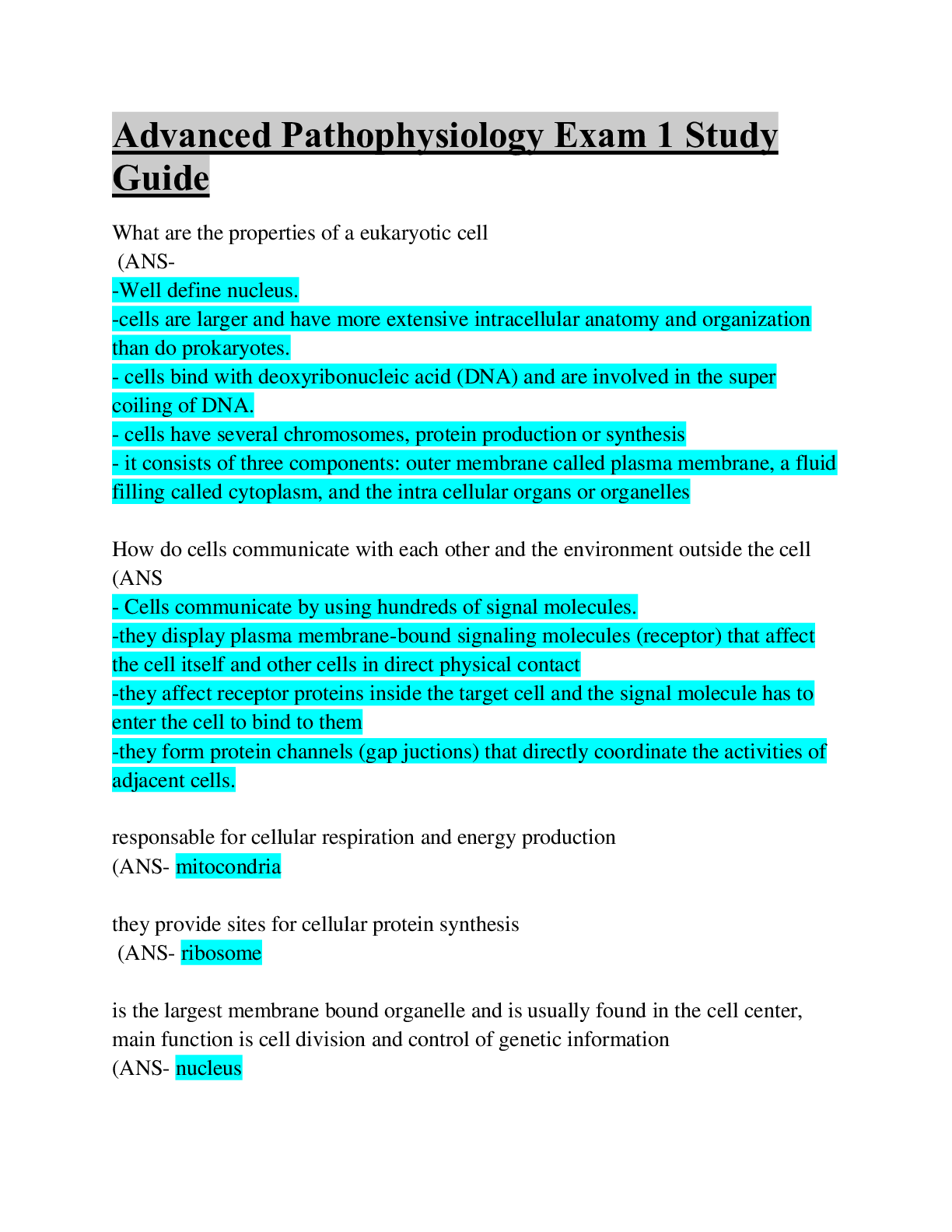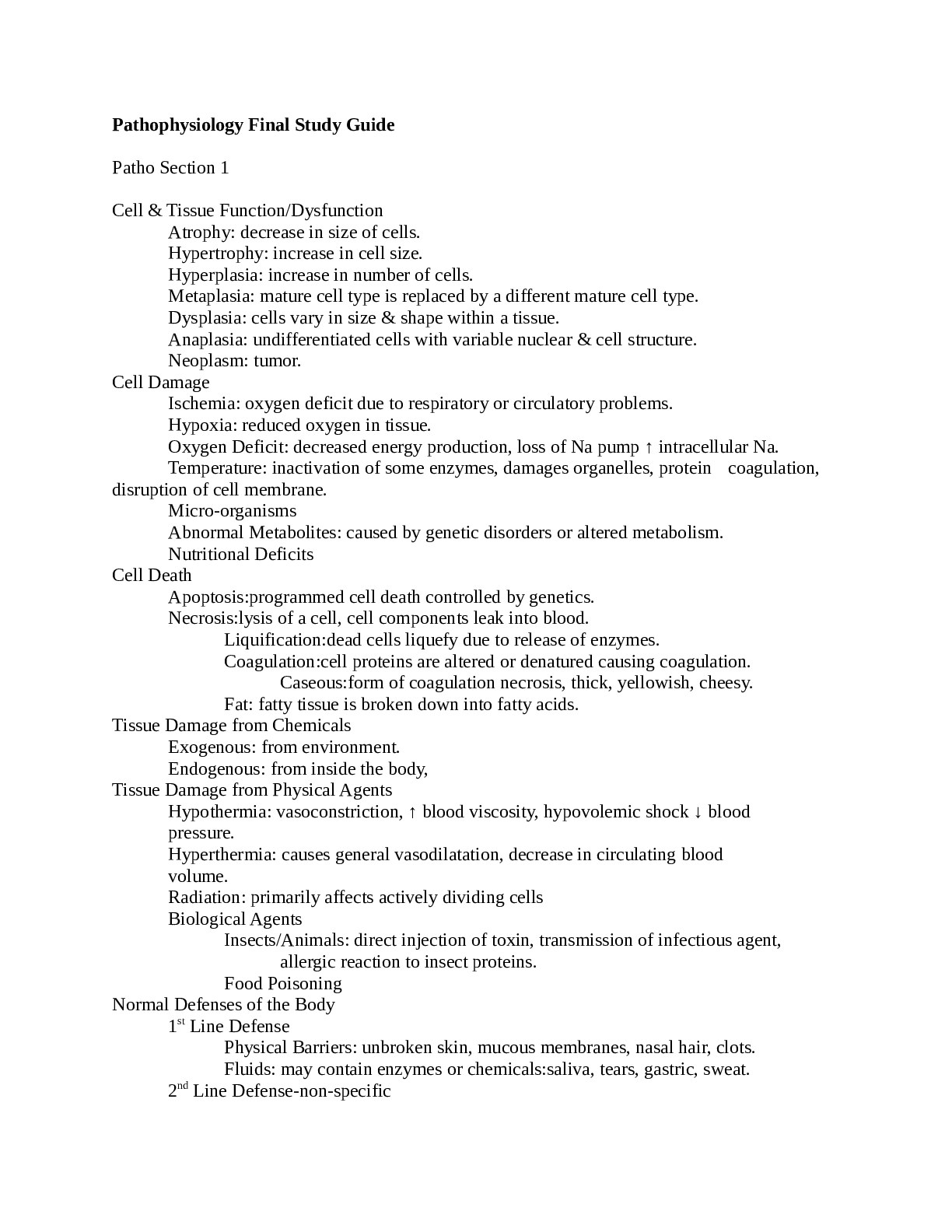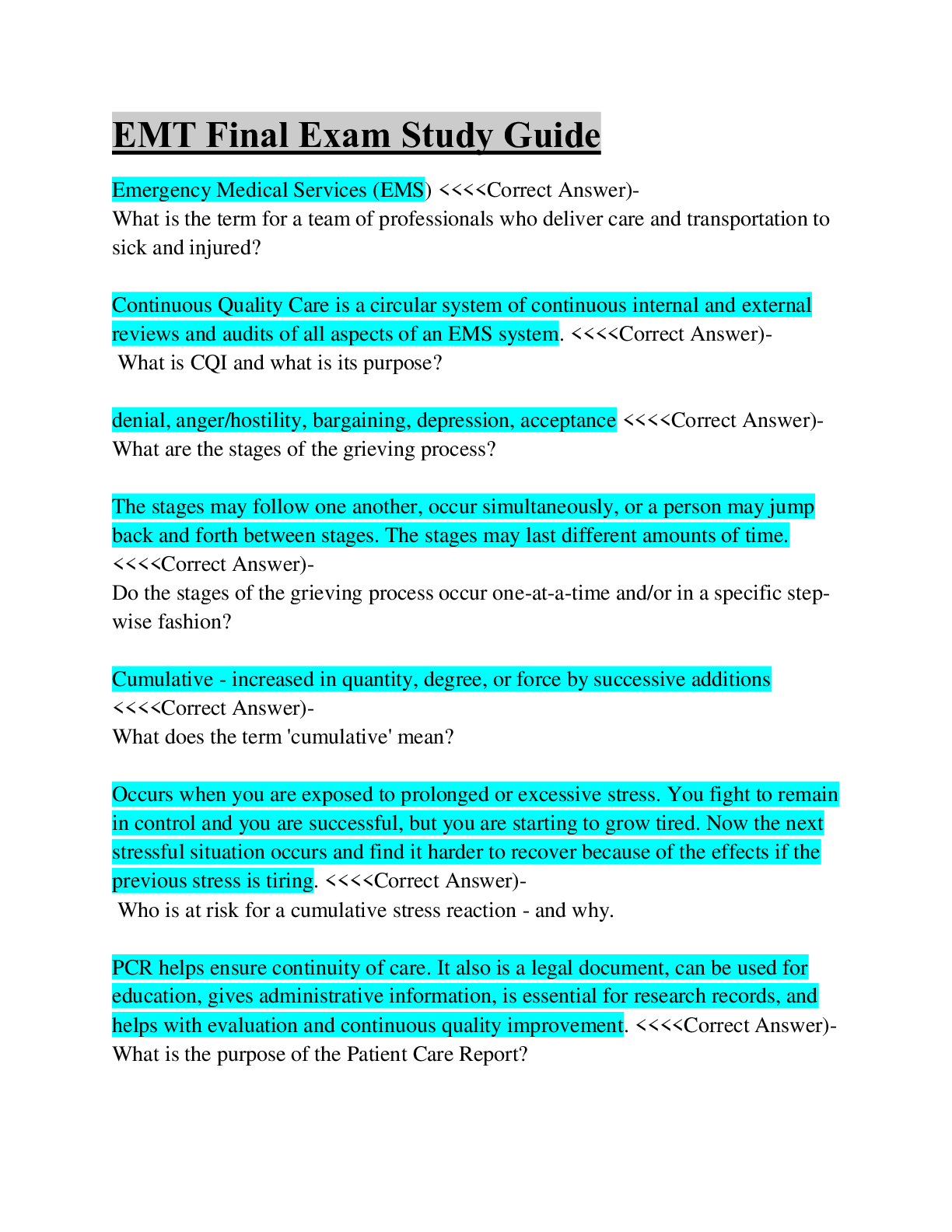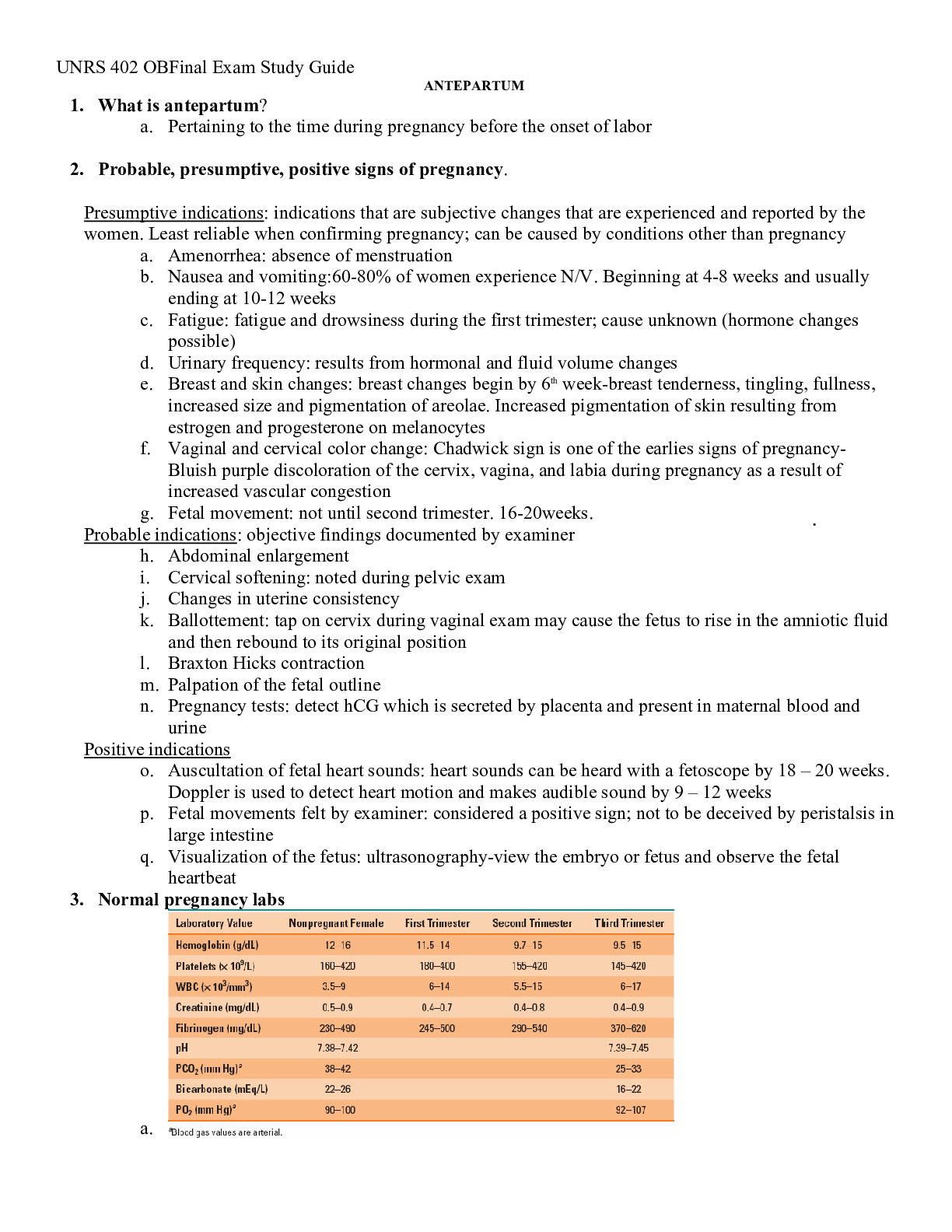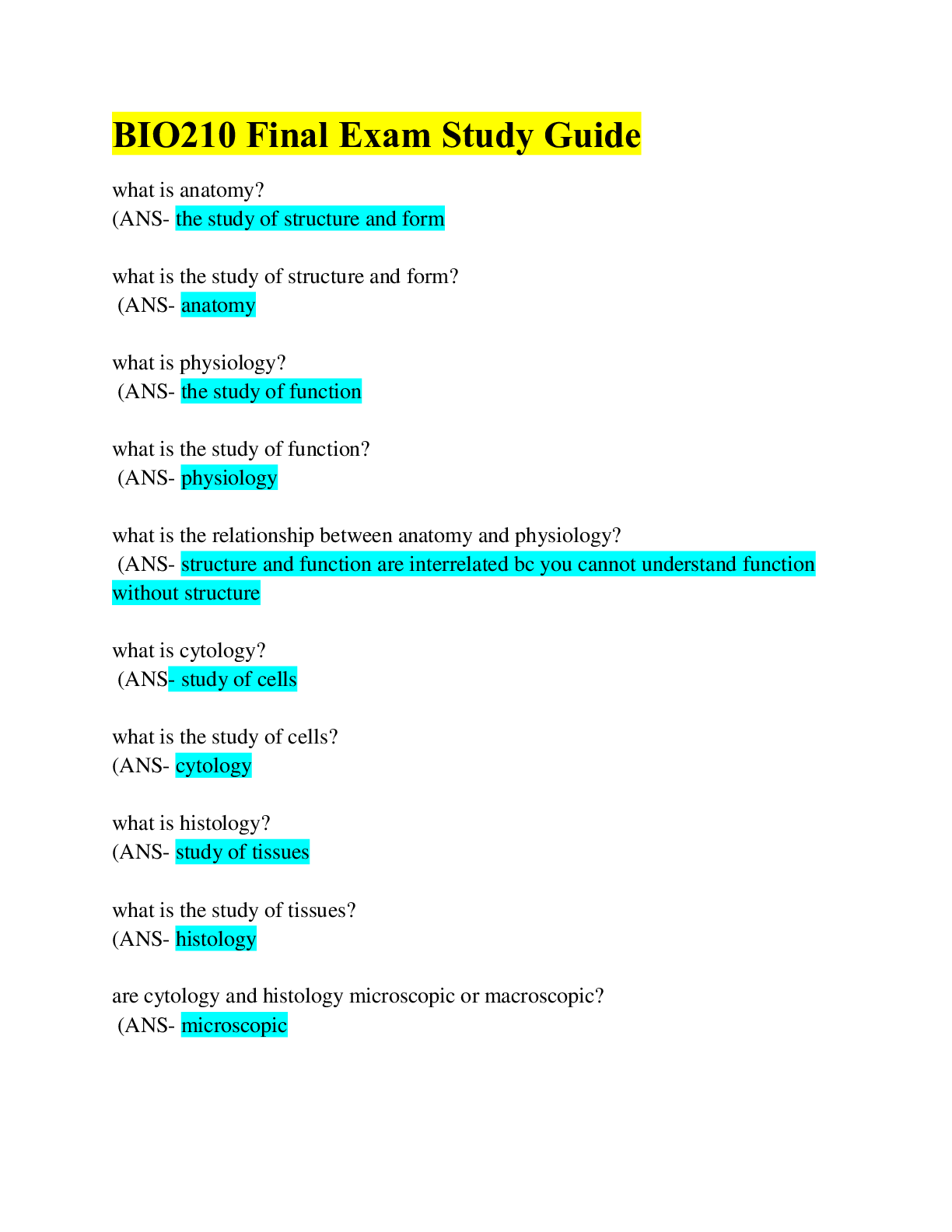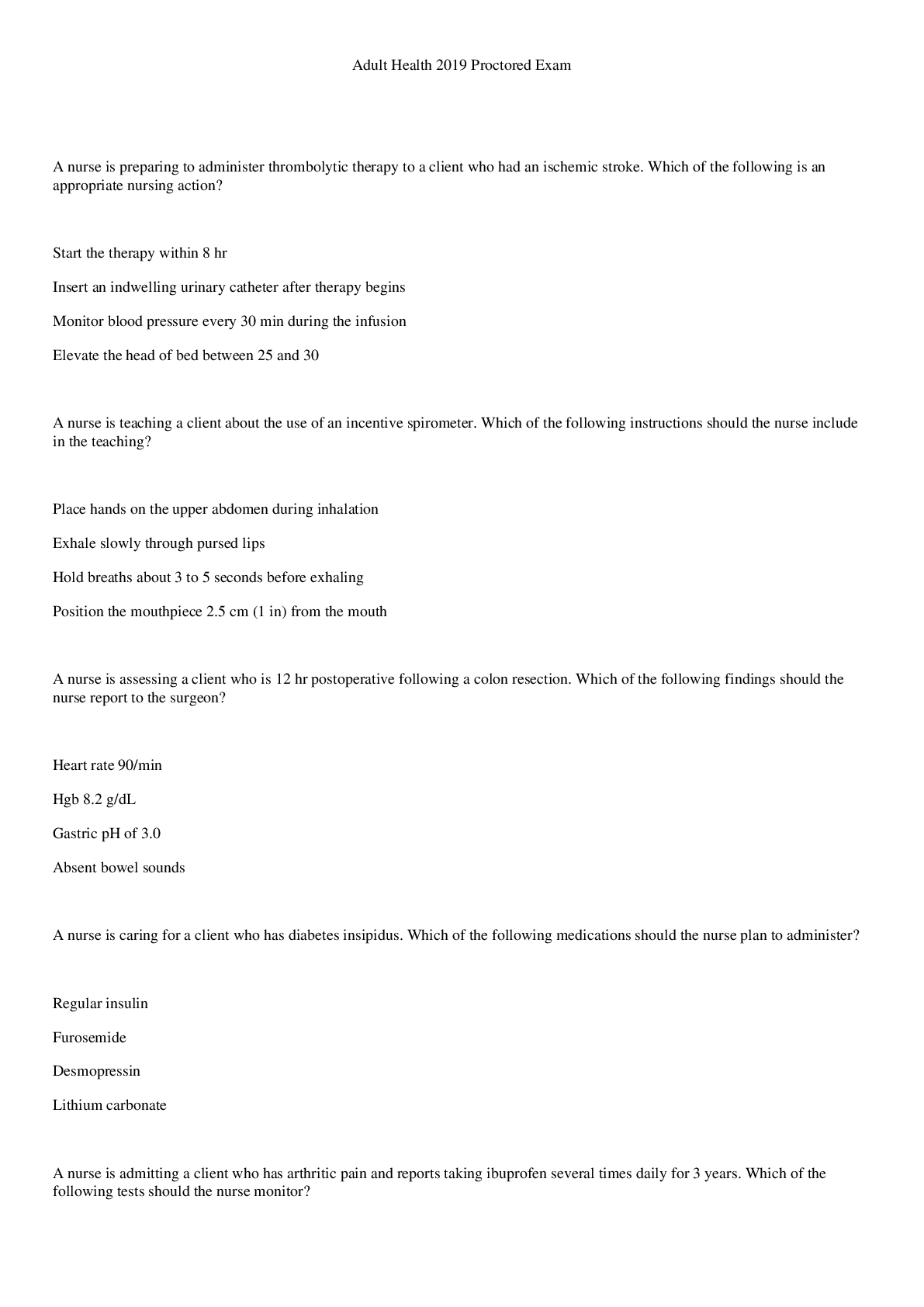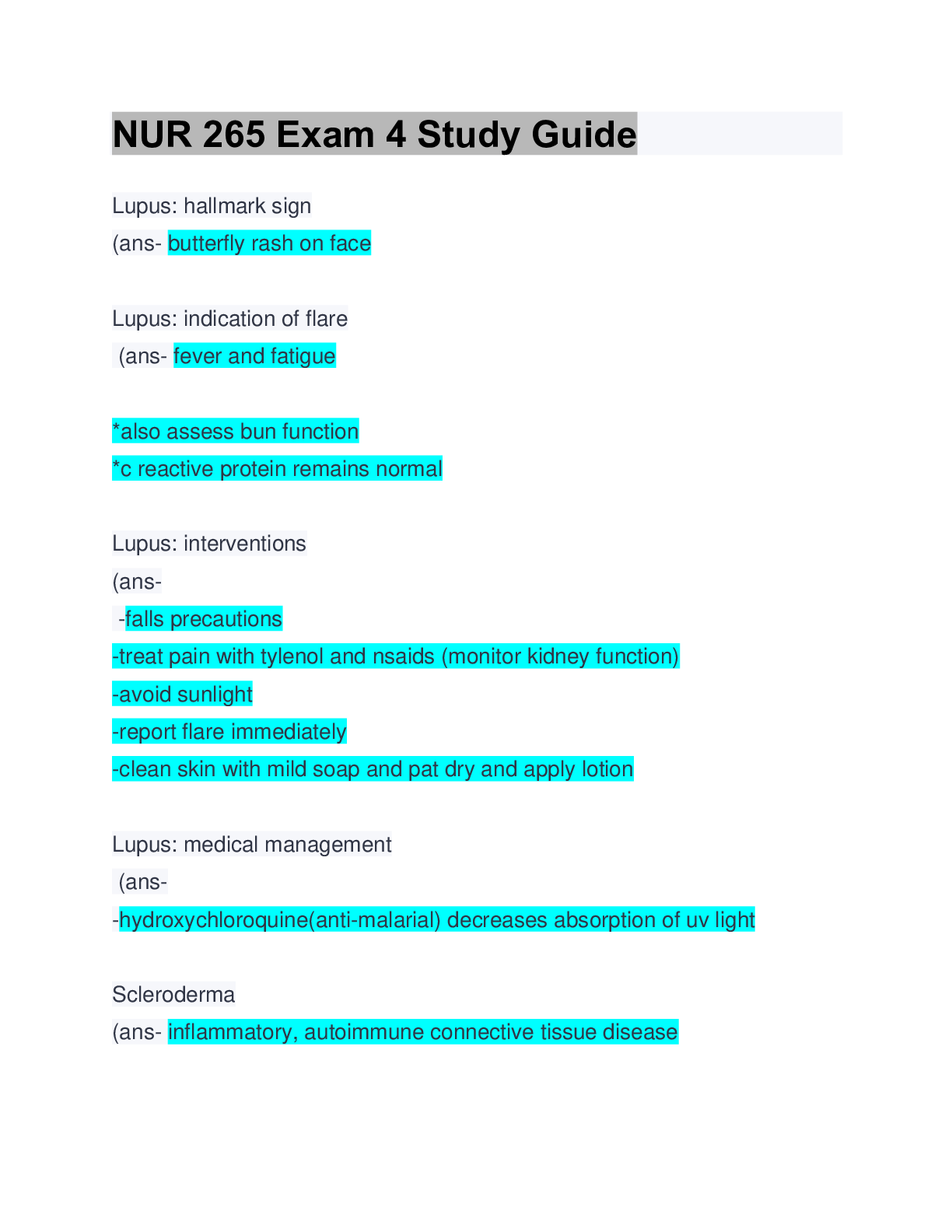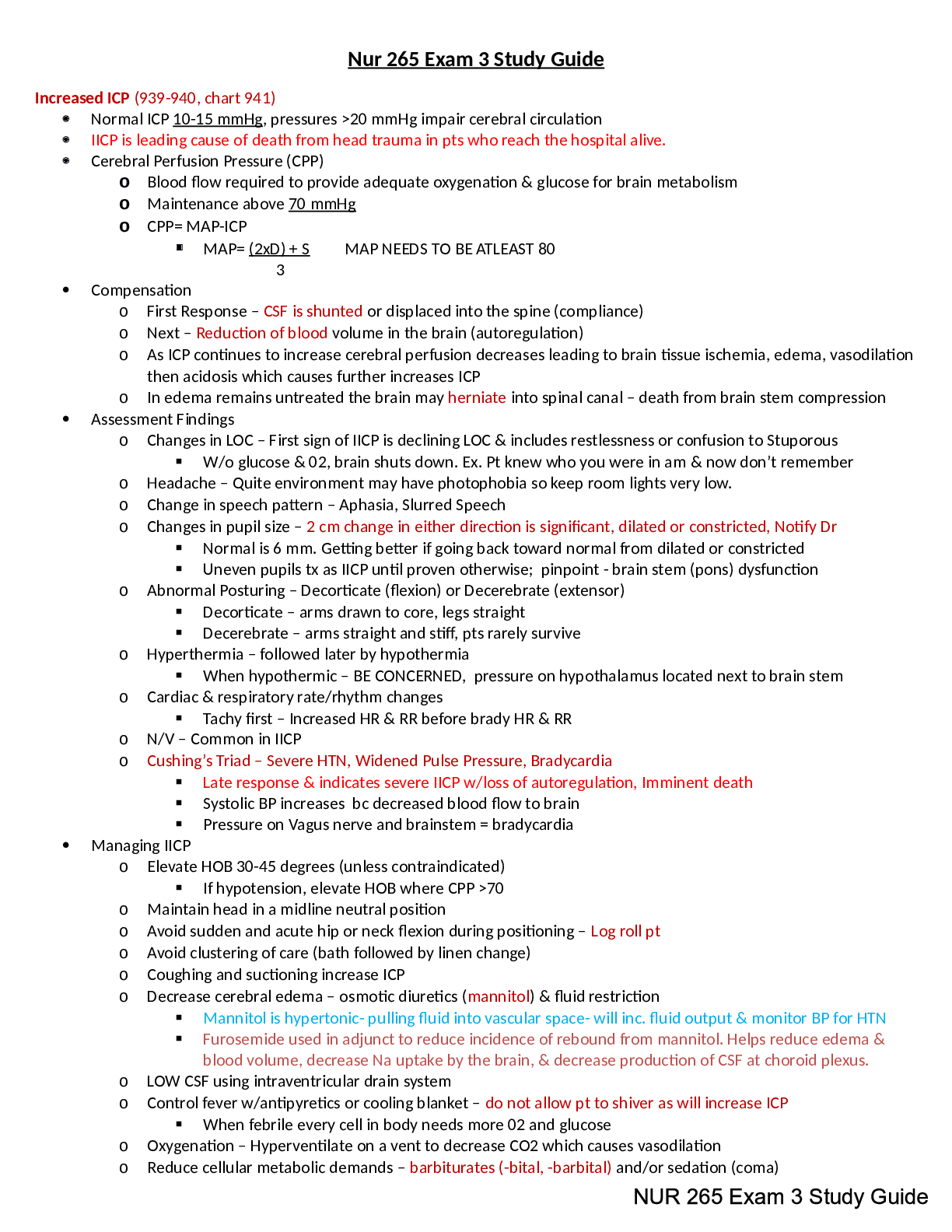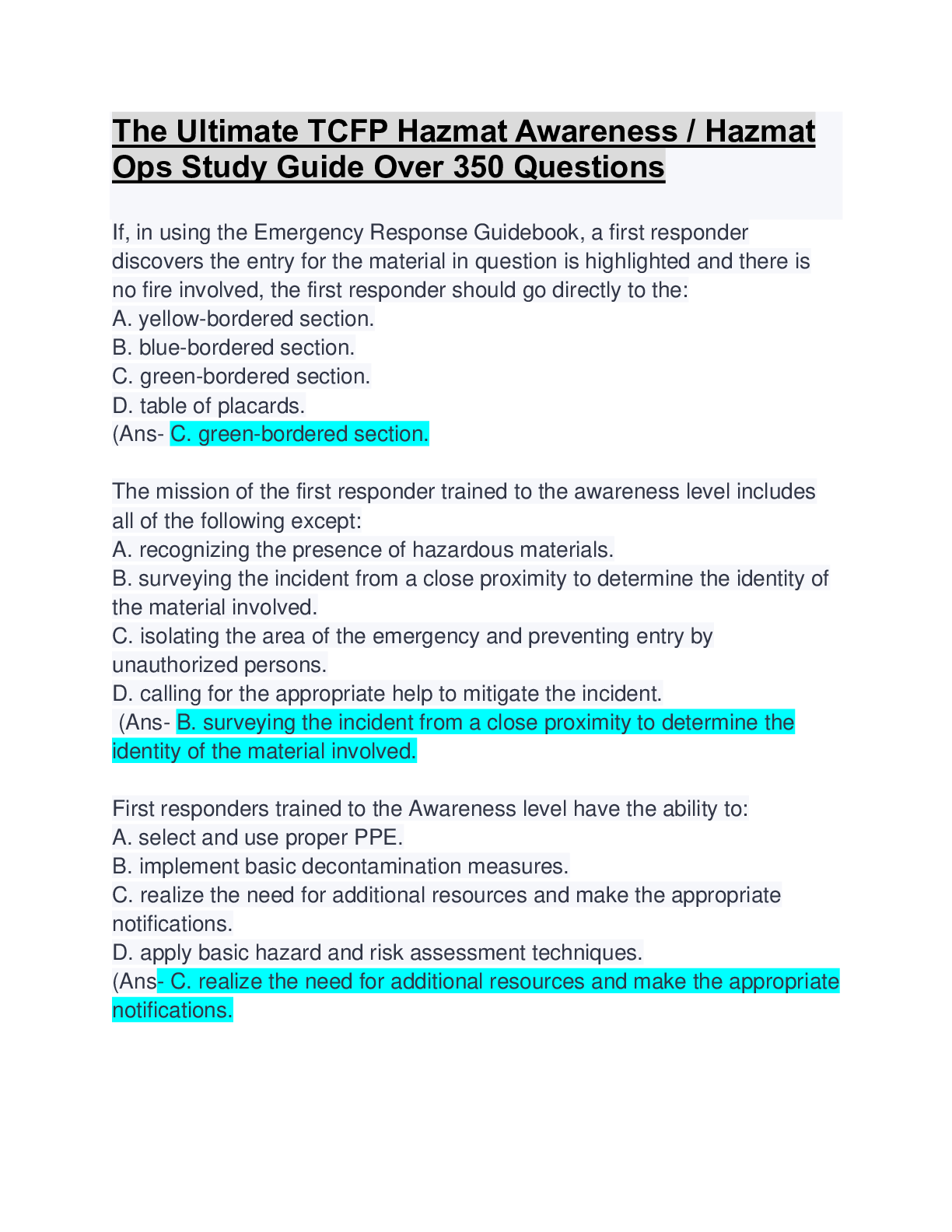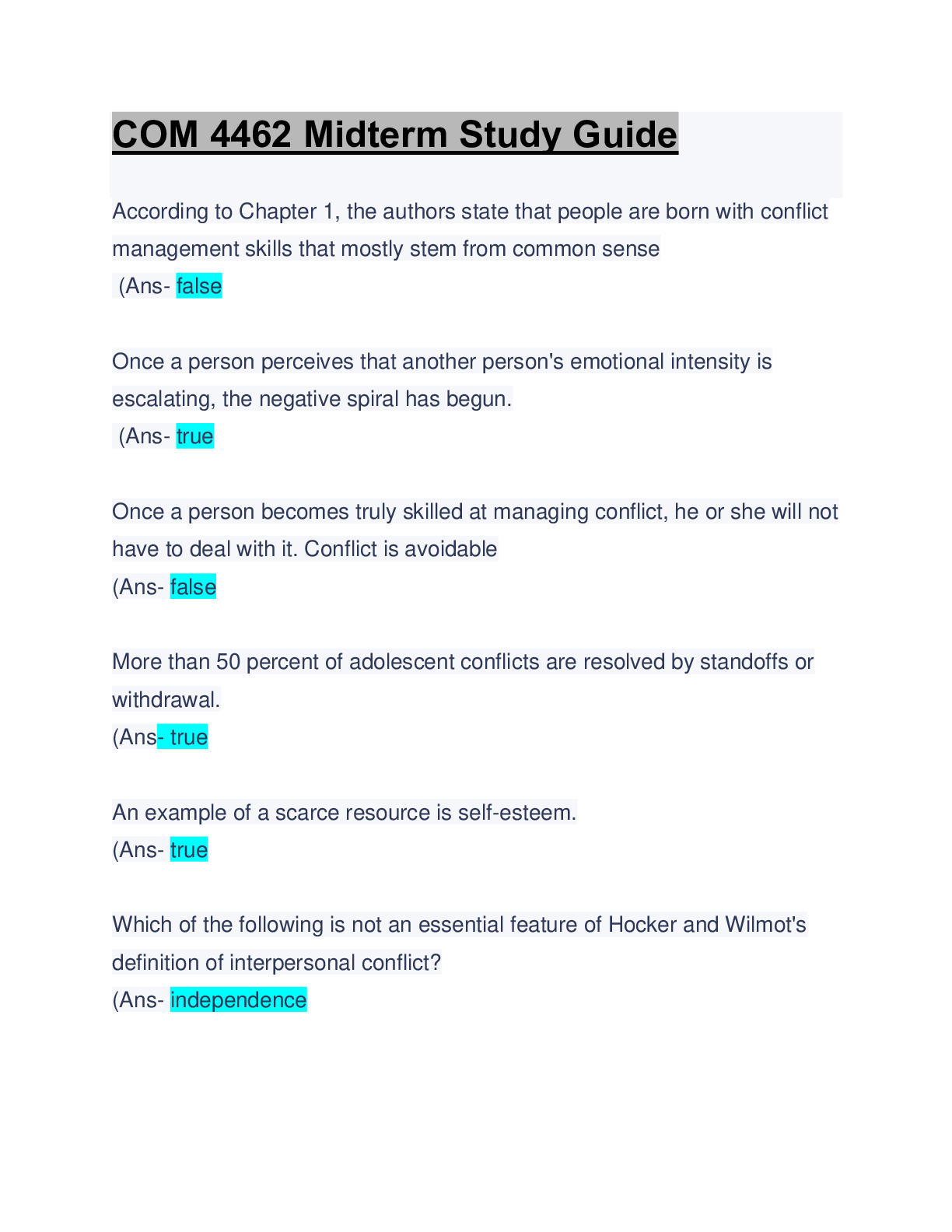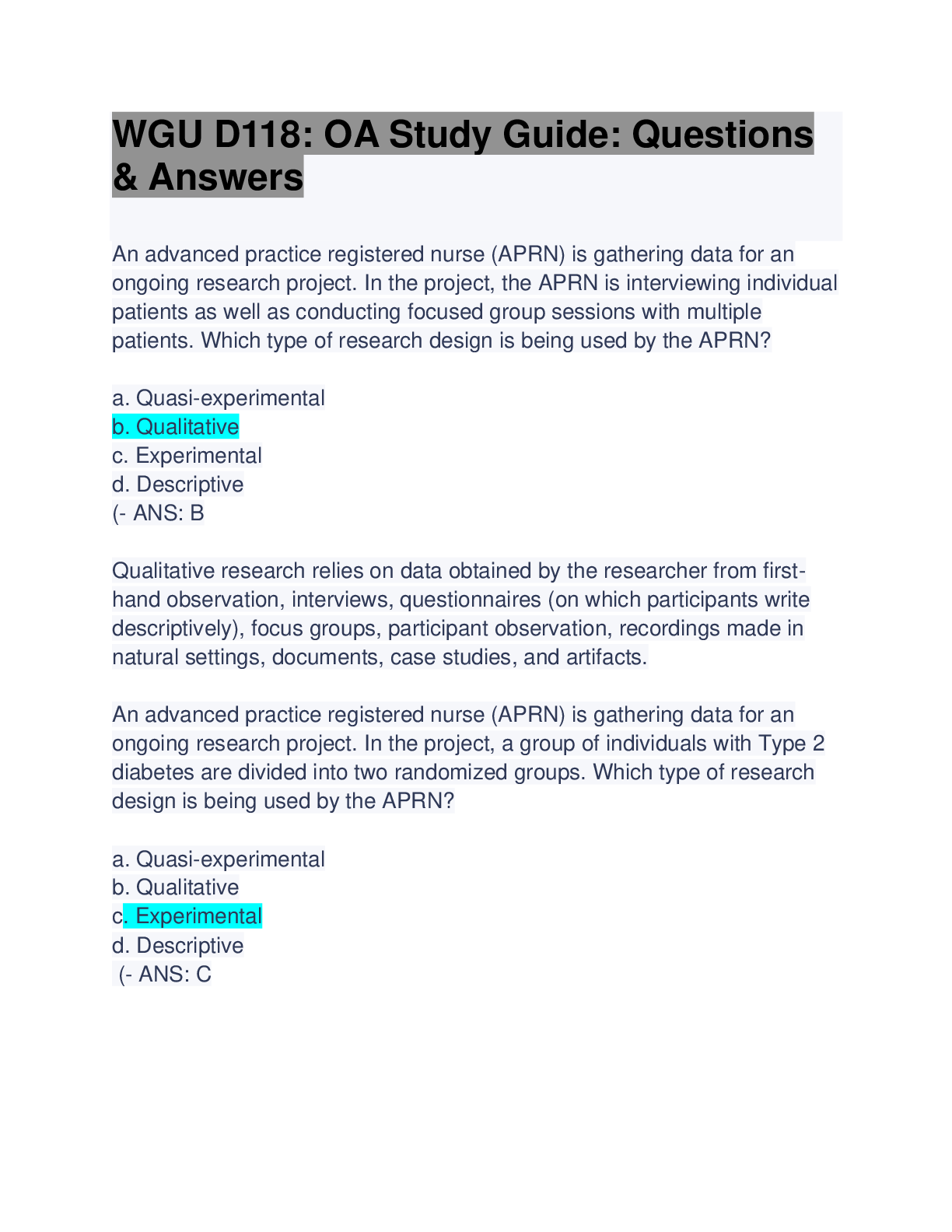Health Care > STUDY GUIDE > ATI Community Health Nursing Proctored Focus: Latest Updated A+ Score Guide (All)
ATI Community Health Nursing Proctored Focus: Latest Updated A+ Score Guide
Document Content and Description Below
Care of specific populations: Migrants Migrant workers health problems include: (Ans- 1. Dental disease 2. TB 3. Chronic conditions 4. Stress, anxiety, & other mental health conditions 5. Le... ukemia 6. Iron deficiency anemia 7. Stomach, uterine, & cervical cancers 8. Lack of prenatal care 9. Higher infant mortality rates Primary Prevention for Rural or Migrant Health care: (Ans- -educate on measures to reduce exposure to pesticides -teach on accident prevention -prenatal care -mobilize preventative services (dental, immunizations) Secondary Prevention measures for Rural/Migrant Health care: (Ans- SCREENING! screen for: -pesticide exposure -skin cancer -chronic preventable diseases -communicable diseases Tertiary Prevention measures for Rural/Migrant Health care: (Ans- -treat for symptoms of pesticide exposure -mobilize primary care and emergency services Client's rights include... (Ans- -right to info disclosure -privacy -informed consent -info confidentiality -participation in treatment decisions Autonomy (Ans- respecting a client's right to choose (i.e. refusing chemo) Nonmaleficence (Ans- doing no harm Beneficence (Ans- maximize benefits and minimize possible harms Justice situation: (Ans- determining eligibility for health care services based on income and fiscal resources HIPAA rules about information security: (Ans- -only staff assigned to the patient may view/read client's health record (no other nurses or doctors) -client's have the right to read or obtain a copy of their health record -nurses may not photocopy any part of med record except for authorized exchange of docs between facilities & providers -staff must keep records/names of client in secured place -electronic records are password protected -no sharing info to family members w/out code in person, email, or phone call -talking about a client must be in a private setting so no one can overhear HIPAA info security protocols include: (Ans- -log off computer before leaving workstation -never share ID or password -never leave med records where ppl can see it -shred any printed info about client after use -don't use or view social media in clinical settings -no posting about clinical stuff Agent (Ans- -the animate or inanimate object that causes the disease. -ex. chemical (drugs, toxins); physical (noise, temperature); infectious (viruses, bacteria) Host (Ans- the living being that is affected by the agent -ex. age, gender, genetics, ethnicity, immunological status, physiological state, occupation environment (Ans- the setting or surrounding that sustains the host -ex. Physical (geography, water/food supply, presence of reservoirs/vectors); Social (access to health care, high-risk working conditions, poverty) Caring for a client with gonorrhea: (Ans- -nationally notifiable disease -women are frequently asymptomatic -CDC recommends yearly screening for all sexually active women 25 yrs or older or w/risk factors [Show More]
Last updated: 2 years ago
Preview 1 out of 30 pages

Buy this document to get the full access instantly
Instant Download Access after purchase
Buy NowInstant download
We Accept:

Reviews( 0 )
$8.00
Can't find what you want? Try our AI powered Search
Document information
Connected school, study & course
About the document
Uploaded On
Mar 01, 2023
Number of pages
30
Written in
Additional information
This document has been written for:
Uploaded
Mar 01, 2023
Downloads
0
Views
99


